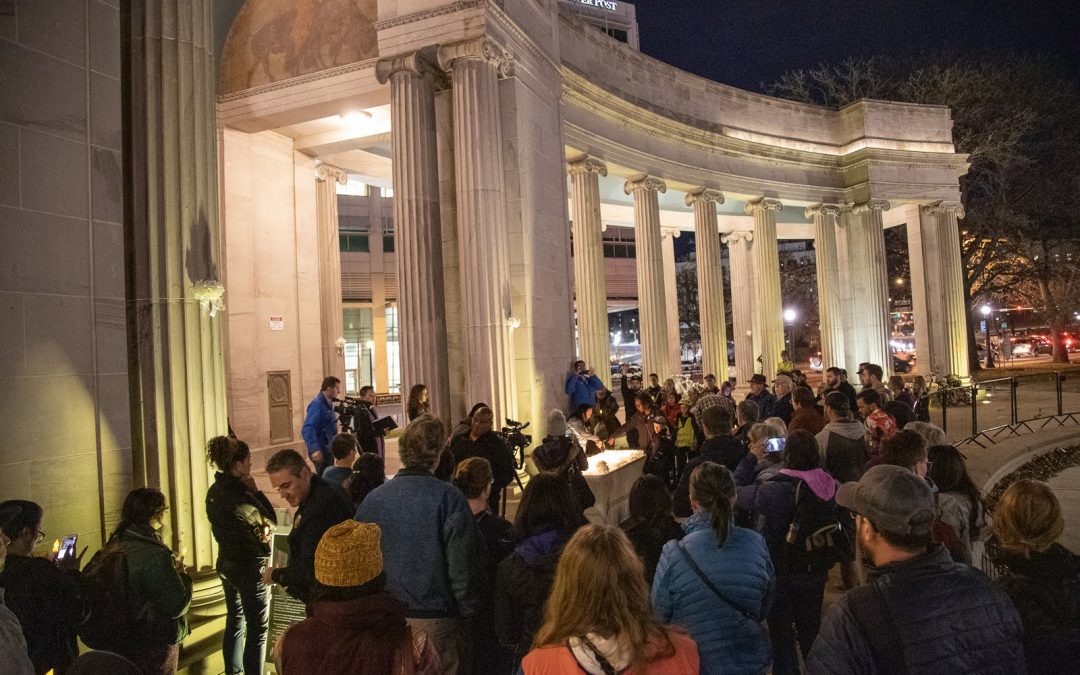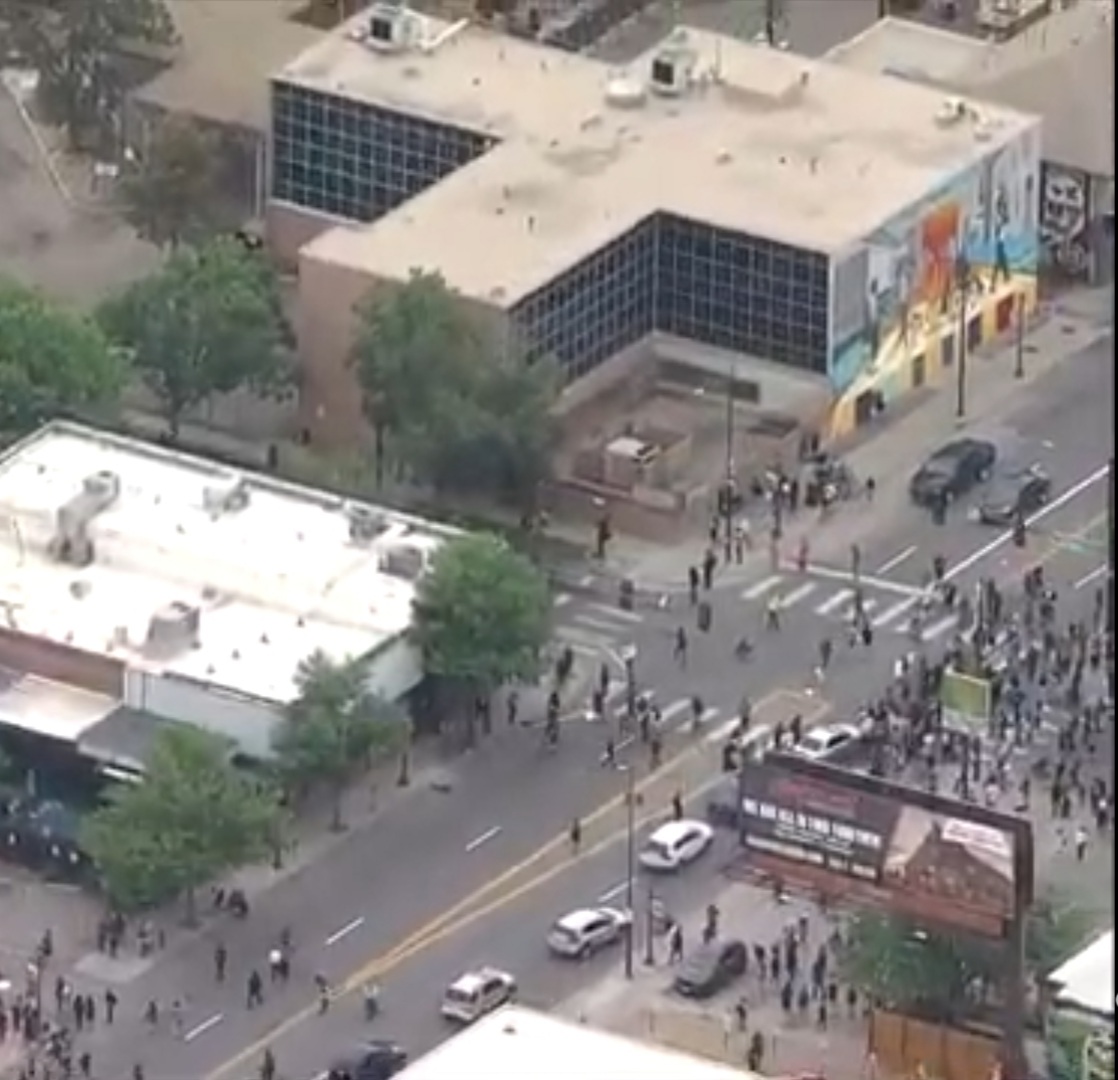
Last weekend, I watched live video from the 9News helicopter of protesters and police clashing in front of the District 6 Police Station on East Colfax Avenue. As the helicopter circled, the Vision Zero mural that WalkDenver (now the Denver Streets Partnership) commissioned in 2018 repeatedly appeared as the backdrop to the chaos on the street.
Left: Screenshot from 9News video of protests on East Colfax on May 30, 2020.
The large-scale mural, which the local artist Pat Milbery designed in collaboration with East High School art students as one of our Vision Zero Community Art Projects, includes the words “Streets are for the People” at the top.
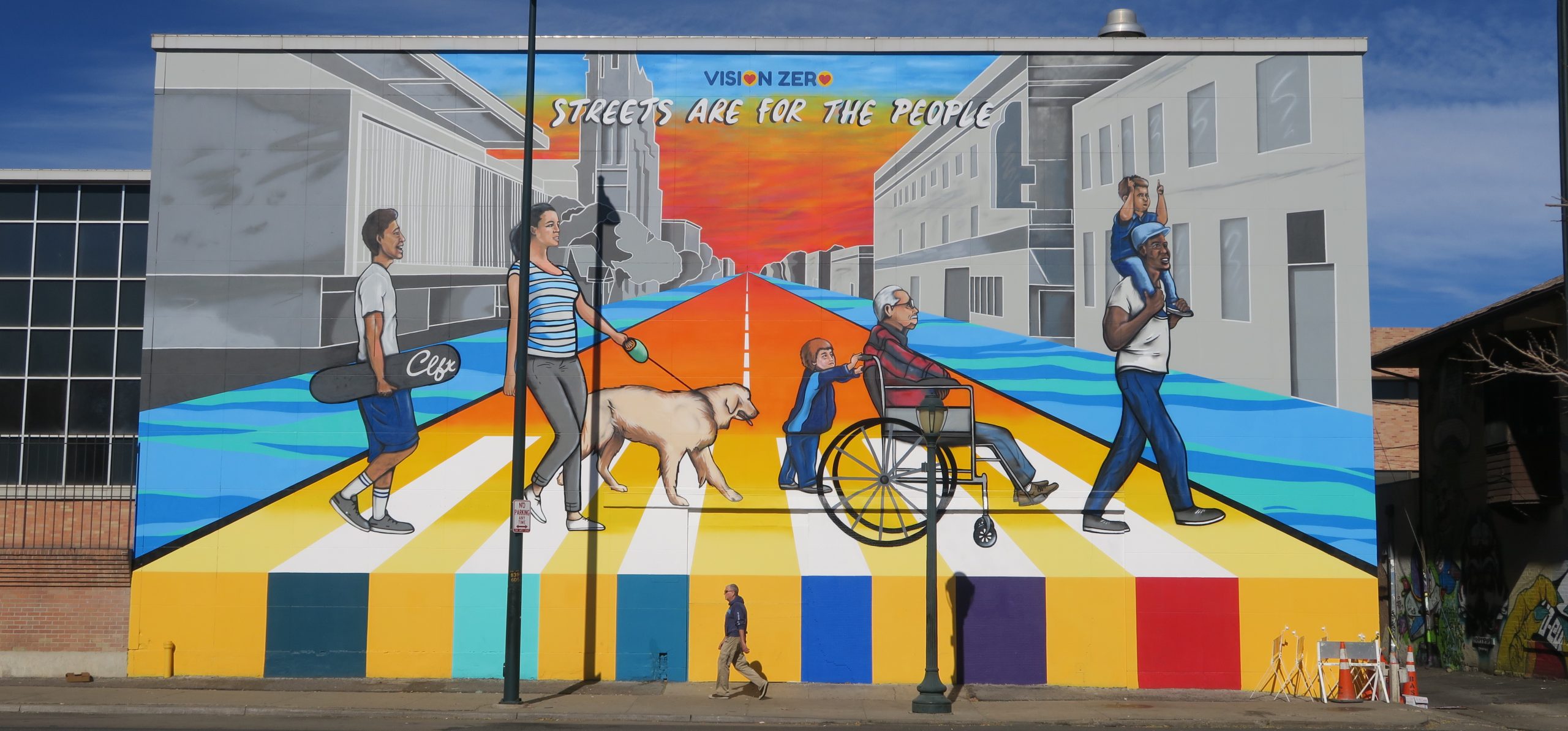
To me, the words “Streets are for the People” assert that streets are public spaces, and that we all have a right to feel safe and welcome in that space, whether we are driving, walking, biking, rolling, or just existing. Regardless of our age, race, ethnicity, gender, income, or physical ability, we all deserve to be treated with dignity on Denver’s streets.
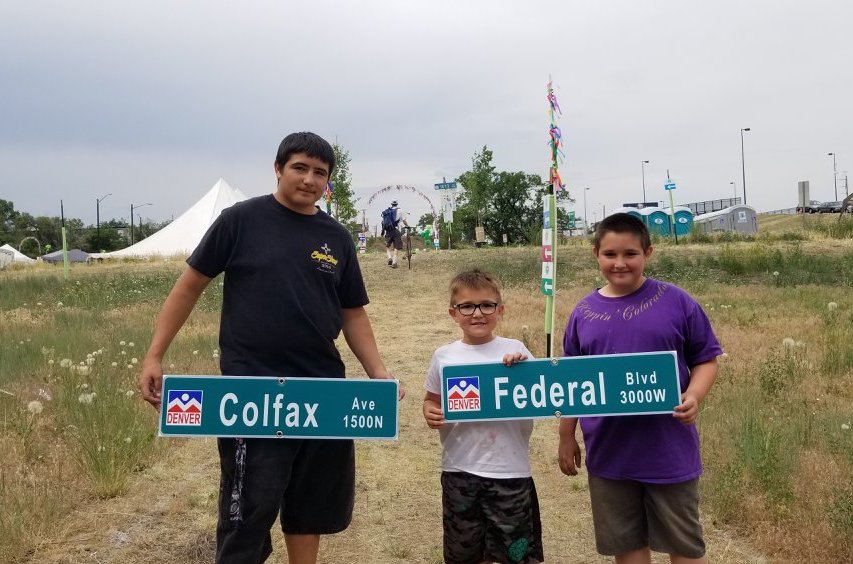
West Denver Residents attending the “Over the Colfax Clover” design demonstration, June 2018.
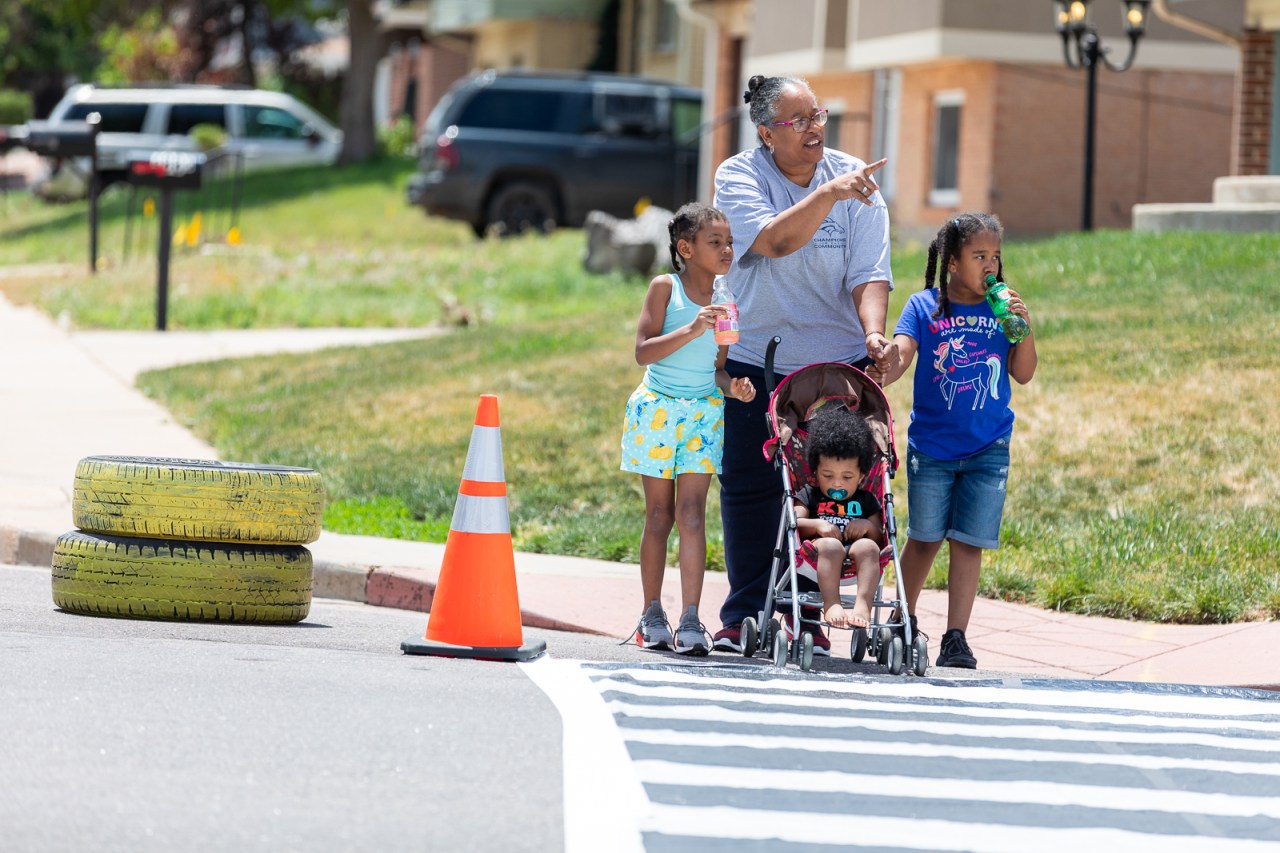
Montbello residents attending the Silverman Park Pop-Up Traffic Calming, June 2019.

Attendees at the Tasty Colfax restaurant sampler and Pop-Up Traffic Calming, July 2019.
Below: Images from the 2016 Vision Zero Love In
“Streets are for the People” also honors the long-standing tradition of people taking over the streets for protests and demonstrations. Every year, people take over Colfax Avenue for the Gay Pride Parade and the Marade. This past Sunday, people marched down Colfax to protest police brutality.
Left: Video by Pat Milbery of people marching past the Vision Zero Mural during the 2019 Marade
Colfax is where we launched Denver’s Vision Zero movement in 2016, because it is both one of Denver’s premier main streets, and one of Denver’s most deadly streets. Eleven people were killed in preventable traffic crashes on Colfax last year.
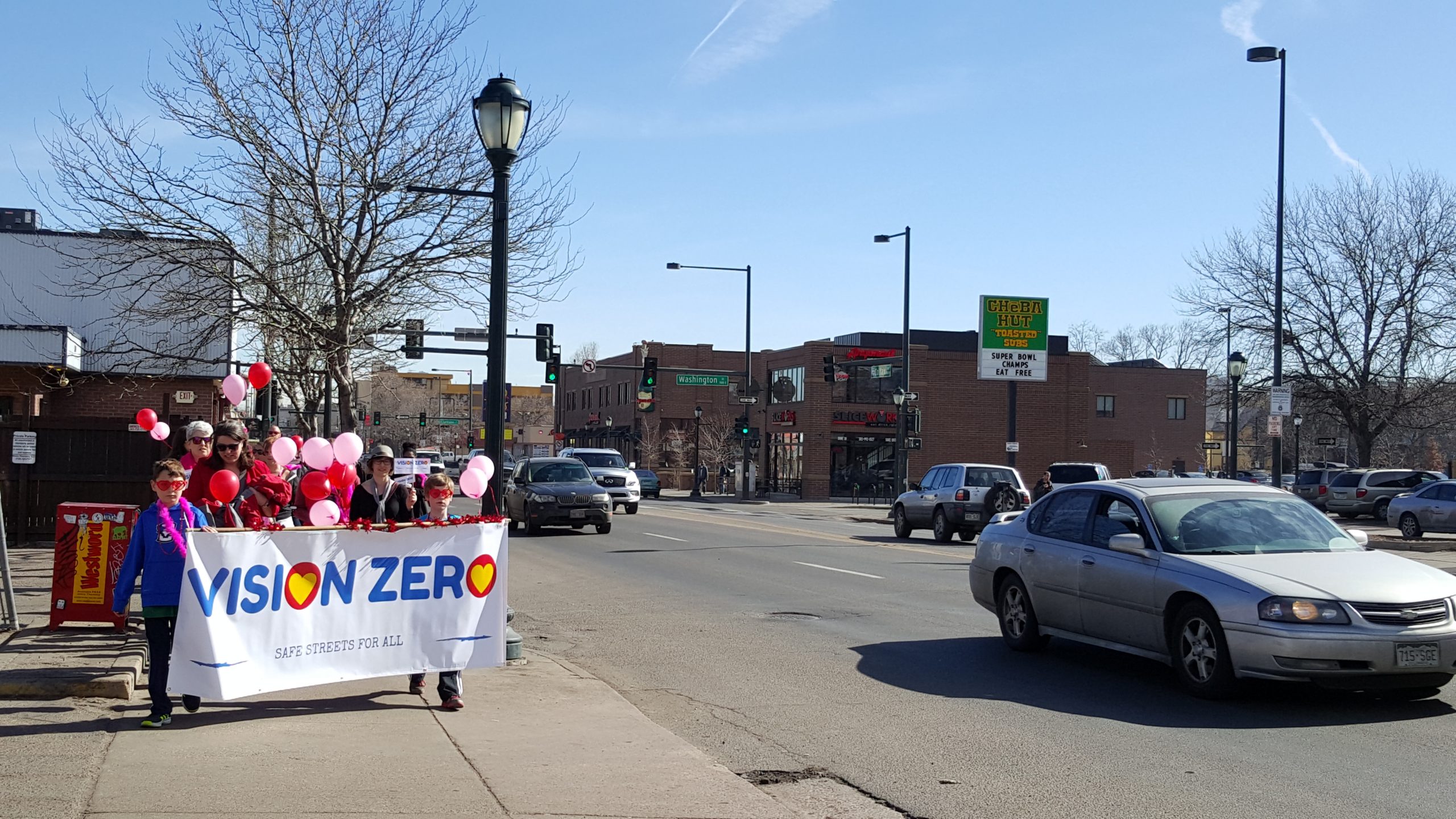
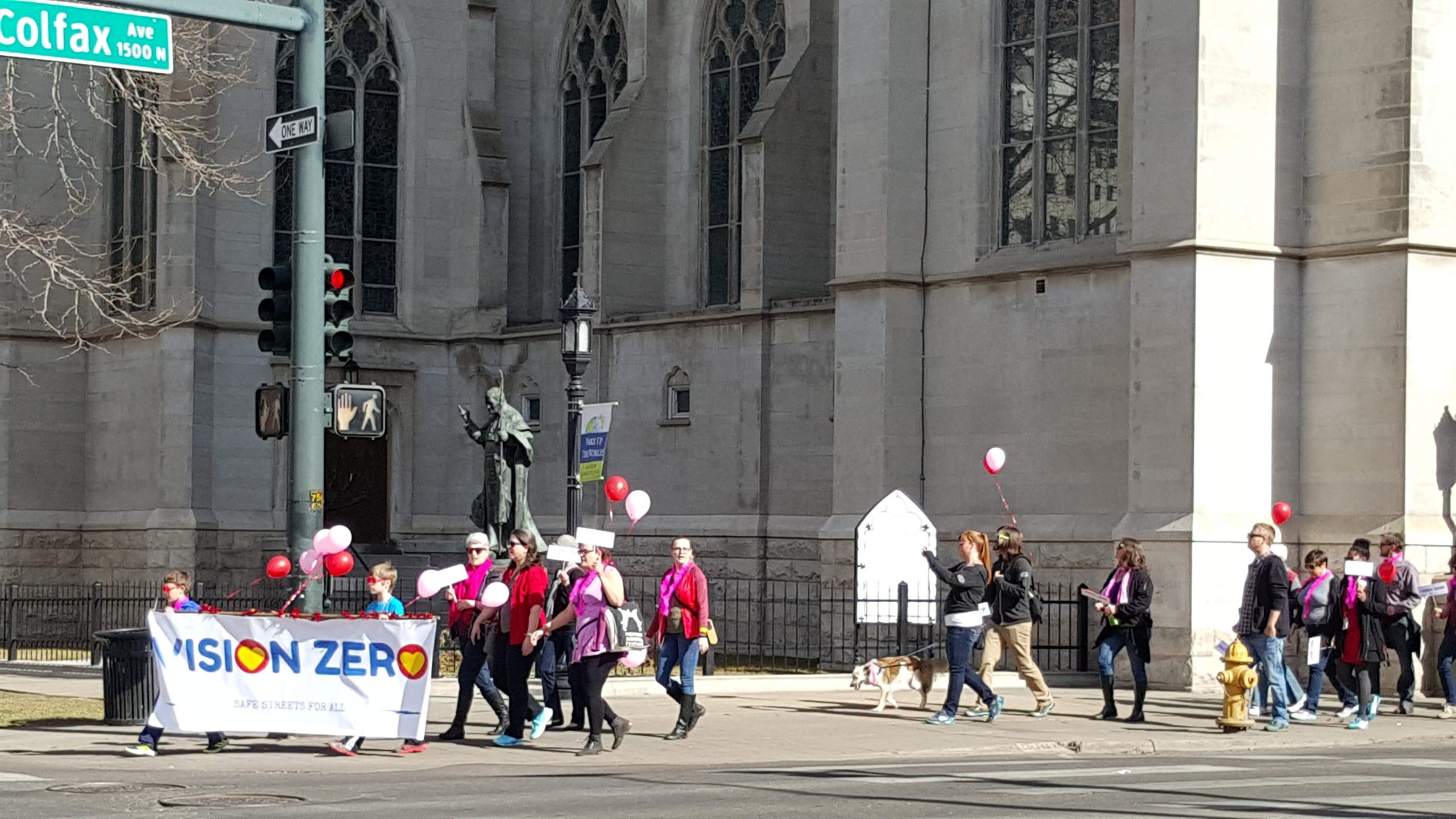
Colfax is where we hosted the World Day of Remembrance candlelight vigil on November 17, 2019, to honor the victims of traffic crashes and their families. As of that date, 235 lives had been lost in preventable traffic crashes since February 17, 2016, the day Mayor Hancock officially declared Denver’s commitment to Vision Zero.
Below: Images from the 2019 World Day of Remembrance candlelight vigil
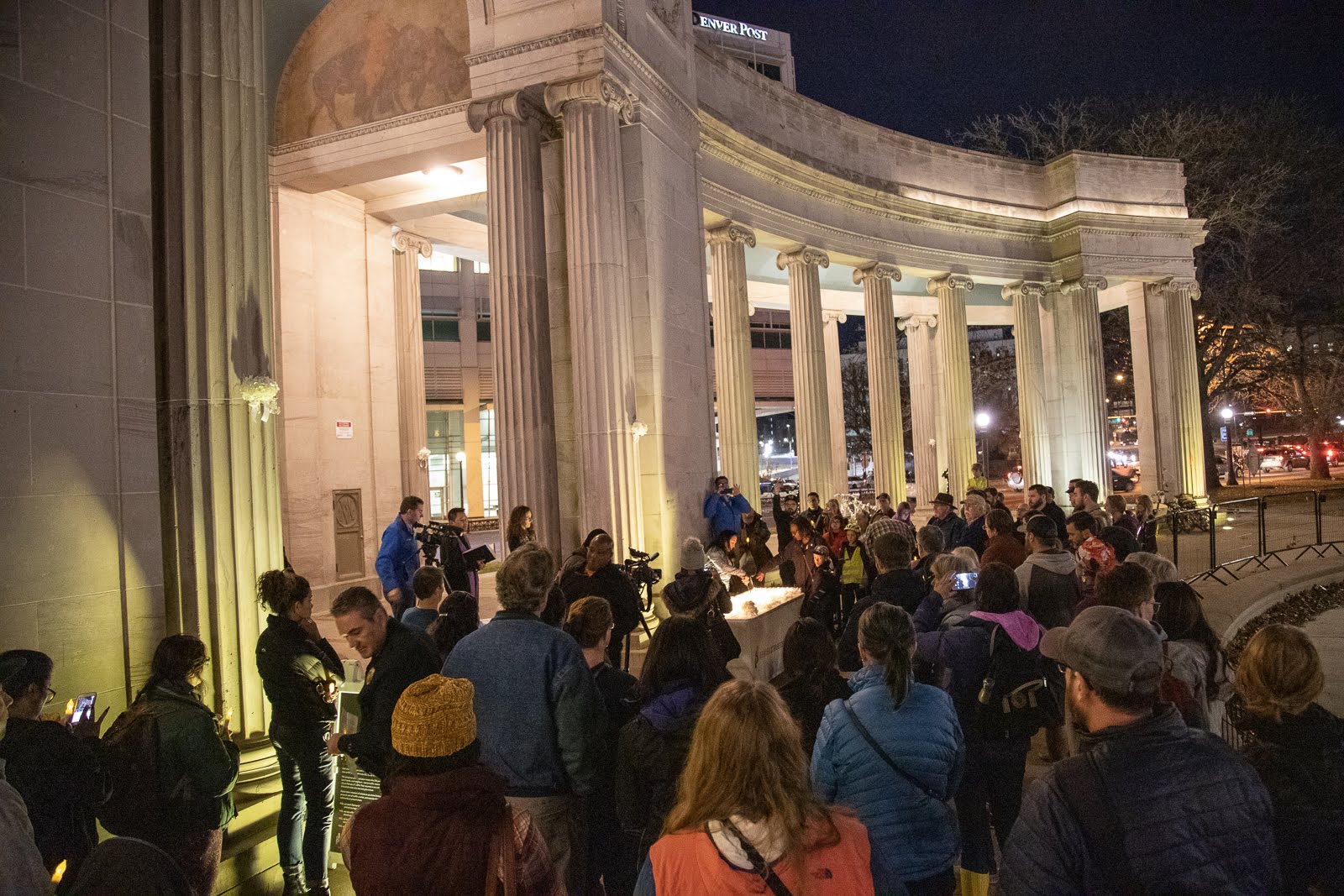

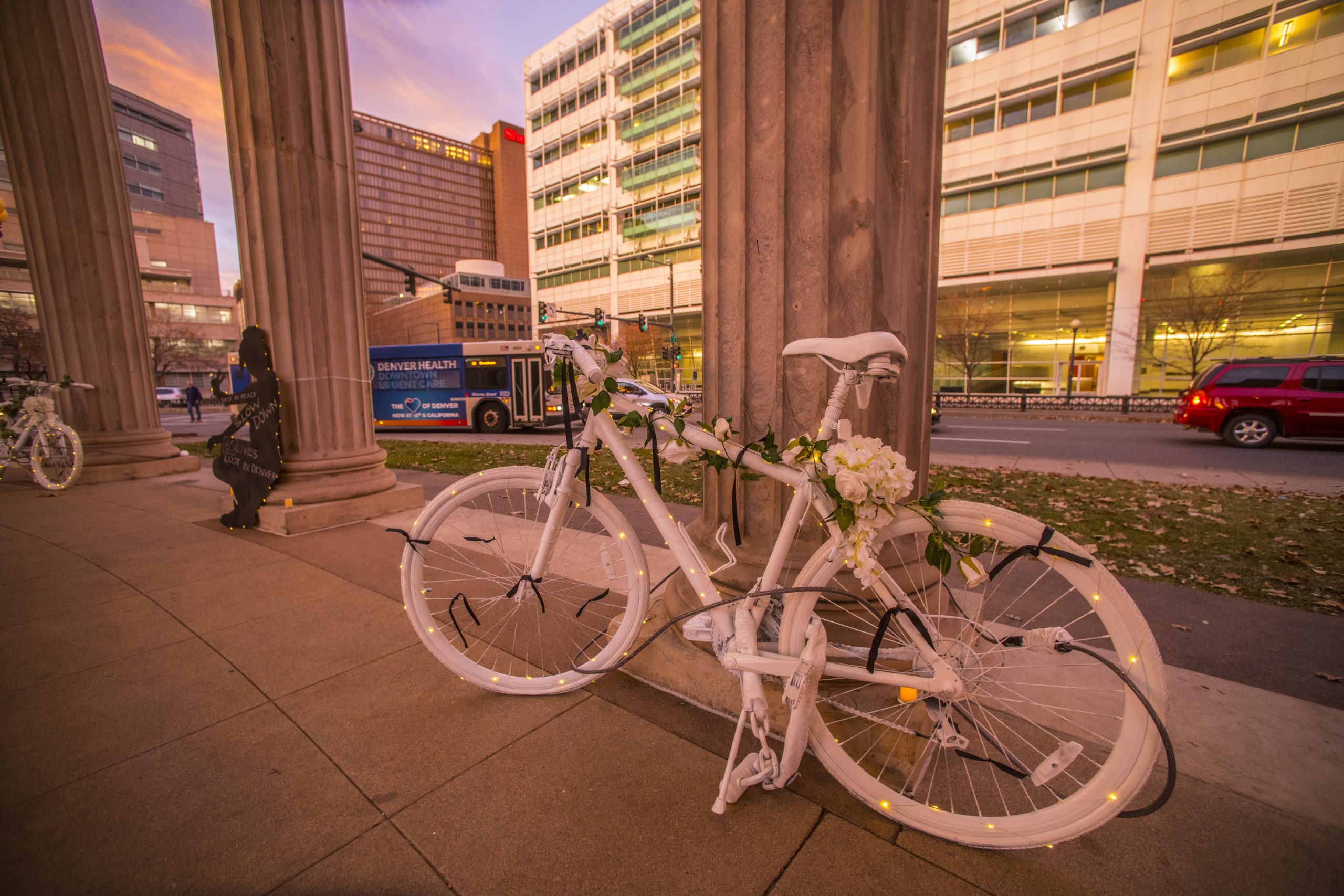
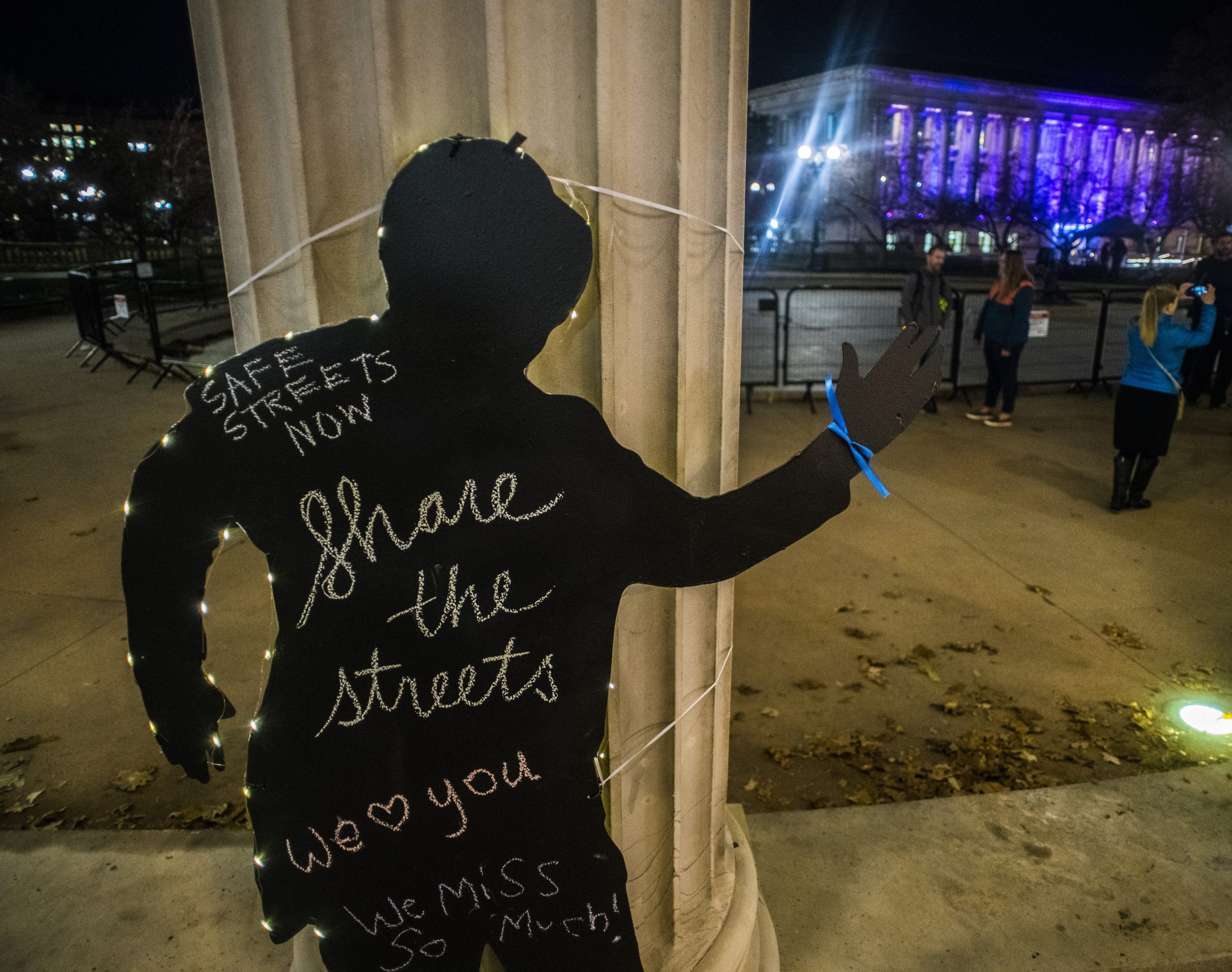
I am passionate about our work to make streets like Colfax safer not just because preventable traffic violence claims tens of thousands of American lives every year, but because the victims of traffic violence are disproportionately Black and Brown. Like every system in America, our transportation system is racist.
Denver has made some progress on reclaiming Colfax for people, with street design changes installed earlier this year that reinforce safer speeds and improve safety for people walking on the corridor.
But no street design changes will protect us from the attitude that it is perfectly acceptable to use your car as a lethal weapon, as we have seen people do repeatedly during the current and previous protests.
And no street design changes will protect us from the systemic racism that is still rampant in the United States. No street design would have prevented the killing of George Floyd, or Ahmaud Arbery, or countless other Black men, women, and children who have suffered violence on America’s streets simply because of their identity, too often at the hands of the police – the very people who are ostensibly tasked with protecting our safety.
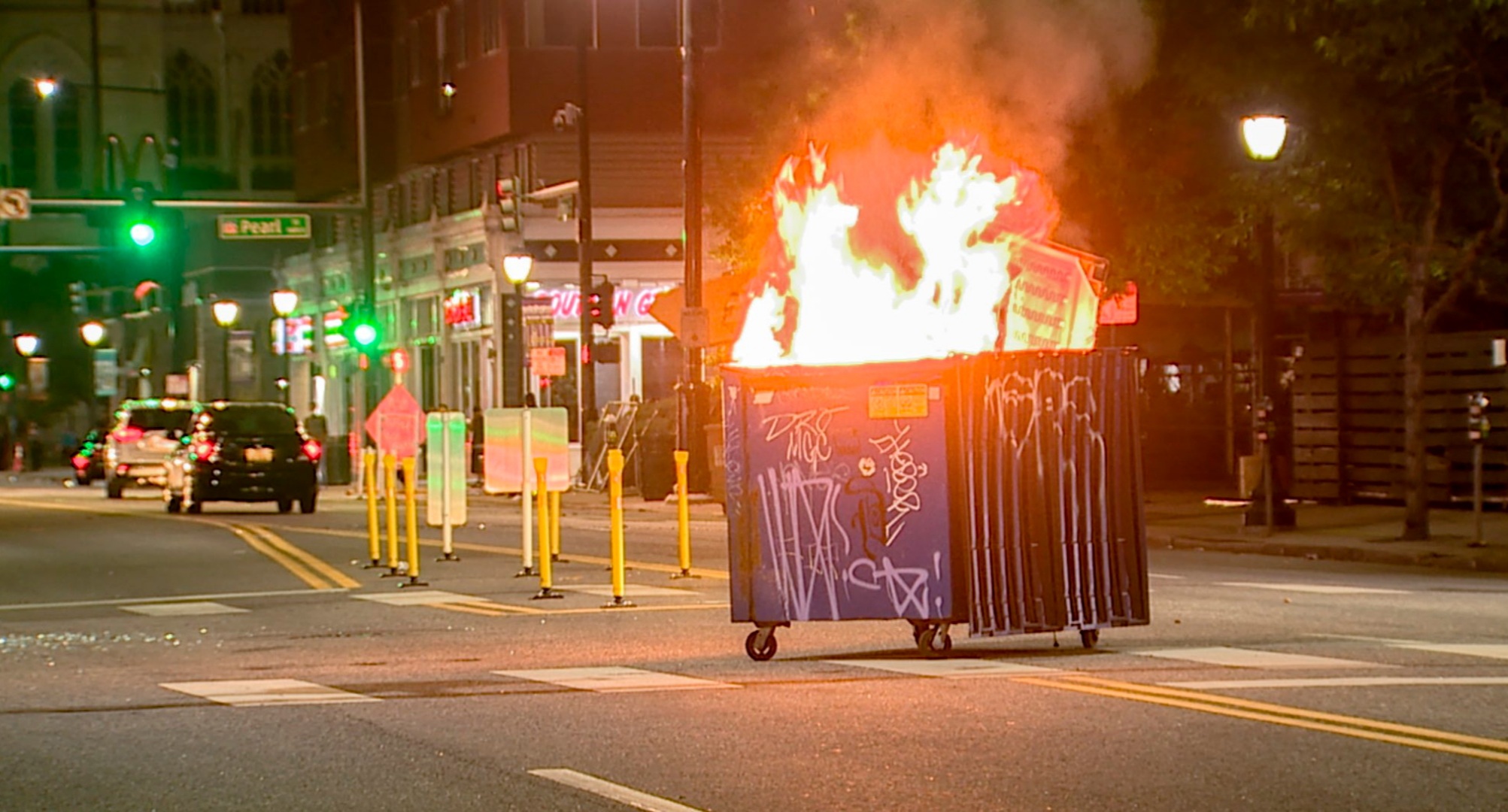
Above: A dumpster burning during protests on East Colfax on May 30, 2020, with Vision Zero street design elements in the background.
“Streets are for the People” is no longer just a catchphrase. It is not even just a statement anymore. It is a challenge, a call to action – and it isn’t coming from us.
Even when space is described as public and is designed for people, Black people claiming this space are seen as a threat. Any attempts to create a transportation system and public spaces that prioritize human dignity must acknowledge this truth, and the moral debts that have compounded over 250 years of slavery, 90 years of Jim Crow, 60 years of separate but equal, and 35 years of racist housing policy. The Black members of our community are leading the fight, the same way they have for a long time. But they will not solve the problem alone because they are not the ones causing it. We are being called out, and we do have to answer. Now, and in the years to come.
At the Denver Streets Partnership, we are committed to confronting this racist history and being anti-racist as individuals and as an organization.
We will ask tough questions of ourselves and our work. We will look for the ways that we have perpetuated racism in past. We will seek out, listen to, and amplify voices that have been marginalized, both within our team and throughout the city. We will set goals and action items for our organization. We will support the work that is already being done by organizations, institutions, and community champions focused on creating more equitable public spaces. And with the acknowledgement that this will be a long, difficult, ongoing process, we will continue to work towards a vision of streets that are truly for the people.

